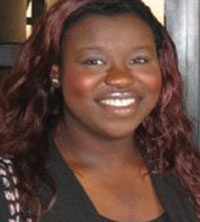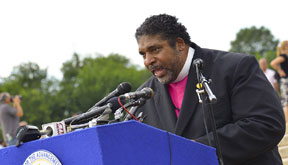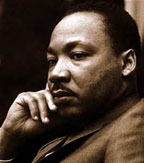

We in the Black community must vote like our lives depend on it … because they just might
By Christina Adeleke
“We who believe in freedom cannot rest until it comes.” –Ella Baker
The Black community is no stranger to systemic attacks against not only its mere existence but also its human and civil rights, specifically voting rights. Our nation has a long history of discrimination and bias toward people of color, namely Black Americans. Through the Voting Rights Act of 1965, Black Americans were given their first opportunity to fight against years of inhumane treatment and the denial of basic human and civil rights, but there is still more work to be done. While the Black community saw progress with the de jure, or legally mandated, desegregation of housing, schools and public accommodations, the Jim Crow era prevented our community, especially in the South, from fully exercising our right to hold the government accountable for its harmful actions.
The Black community still faces attacks on its voting rights and well-being. In 2018, Black Americans are still disproportionately living in poverty, in prison, without access to affordable and quality health care, and newly diagnosed with HIV. In addition, some states have enacted voter-ID laws and other requirements that disproportionately deny voting access to lower-income families and neighborhoods less likely to access government-issued credentials. These harmful policies are compounded by state laws preventing recently incarcerated individuals from exercising their right to vote, though they have already paid their debt to society—infringing on the voting rights of communities of color disproportionately impacted by mass incarceration.
If the long-standing attacks on our right to vote, to have affordable and high-quality health care, and to pursue our dreams have shown us anything, it is that Black people who are able to vote must exercise that right on behalf of the entire community. The 2018 elections will have a long-term effect, since the individuals elected will be deciding policies that affect our country and neighborhoods. So we must participate in the electoral process.
The disproportionate representation of Black Americans in HIV statistics is a specific concern that should encourage civic engagement. According to the Centers for Disease Control and Prevention, Black people account for 12 percent of the U.S. population but 41 percent of people living with HIV (PLWH), more than one-third of PLWH and over half of new HIV transmissions. Yet Black Americans are no more sexually active than people of other races; nor are we more likely to engage in behaviors that might lead to contracting HIV at higher rates.
Factors that contribute to these alarming HIV rates include poverty, stigma, racial discrimination, a lack of access to health care and higher rates of incarceration. It is not enough to simply encourage HIV testing. We must address the barriers to care that substantially impact HIV transmission rates. At all levels, our elected officials must ensure that anyone vulnerable to HIV has access to preventive measures, that Black neighborhoods have access to health care and competent local healthcare facilities, and that social barriers like systemic racism and poverty are addressed in a way that provides equity to our community.
Here in metropolitan Charlotte, N.C., following growing community pressure, Mecklen-burg County’s Health Department recently announced that it will launch a pilot program to give 320 at-risk people pre-exposure prophylaxis (PrEP), a once-a-day pill that one can take to avoid contracting HIV. Mecklenburg County’s rate of 30.4 new HIV transmissions per 100,000 people is more than twice the national average. There are at least 6,630 PLWH in Mecklenburg County, a more than 30 percent spike since 2012.
There were earlier conversations surrounding the idea of the county providing PrEP to those most at risk, but the program was not implemented until the community demanded action. This year we must demand that our elected officials take the necessary steps to end the HIV epidemic disproportionately affecting Black neighborhoods here.
It is up to us to fight for our community’s survival. We must be diligent and question political candidates on their commitment to end the HIV epidemic, expand Medicaid under the Affordable Care Act, provide more affordable housing and address other issues that disproportionately affect our com-munity. We must also hold our current elected officials accountable to their promise to act on behalf of the voters who gave them their position.
We in the Black community must own our position as a sought-after voting bloc that must be listened to and respected. In the past, Black voters have made the difference in elections. We saw this in 2008 with the election of President Barack Obama. Most recently, a record number of Black voters turned out in Alabama to help elect Democrat Doug Jones to the U.S. Senate, making him the first Democrat to represent Alabama in the Senate in over a decade.
We have so much at stake this year. We must not sit out this election season. When we show up to the polls to fight for the survival of our community, we win. We have fought too hard for the right to vote, and now we must put those votes to work!
Christina Adeleke is communications and development coordinator at the North Carolina AIDS Action Network and an attorney.





Be the first to comment